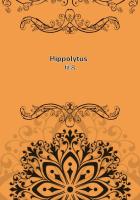My nature is framed for authority. The failure of all my undertakings rankles so in my heart that sometimes I feel capable of every brutality, every meanness, every hateful cruelty. To you I have behaved shamefully. Don't interrupt me, Marian. I have treated you abominably, my child, my dear daughter--and all the time with a full sense of what I was doing. That's the punishment of faults such as mine. I hate myself for every harsh word and angry look I have given you; at the time, I hated myself!'
'Father--'
'No, no; let me speak, Marian. You have forgiven me; I know it.
You were always ready to forgive, dear. Can I ever forget that evening when I spoke like a brute, and you came afterwards and addressed me as if the wrong had been on your side? It burns in my memory. It wasn't I who spoke; it was the demon of failure, of humiliation. My enemies sit in triumph, and scorn at me; the thought of it is infuriating. Have I deserved this? Am I the inferior of--of those men who have succeeded and now try to trample on me? No! I am not! I have a better brain and a better heart!'
Listening to this strange outpouring, Marian more than forgave the hypocrisy of the last day or two. Nay, could it be called hypocrisy? It was only his better self declared at the impulse of a passionate hope.
'Why should you think so much of these troubles, father? Is it such a great matter that narrow-minded people triumph over you?'
'Narrow-minded?' He clutched at the word. 'You admit they are that?'
'I feel very sure that Mr Fadge is.'
'Then you are not on his side against me?'
'How could you suppose such a thing?'
'Well, well; we won't talk of that. Perhaps it isn't a great matter. No--from a philosophical point of view, such things are unspeakably petty. But I am not much of a philosopher.' He laughed, with a break in his voice. 'Defeat in life is defeat, after all; and unmerited failure is a bitter curse. You see, I am not too old to do something yet. My sight is failing, but I can take care of it. If I had my own review, I would write every now and then a critical paper in my very best style. You remember poor old Hinks's note about me in his book? We laughed at it, but he wasn't so far wrong. I have many of those qualities. A man is conscious of his own merits as well as of his defects. I have done a few admirable things. You remember my paper on Lord Herbert of Cherbury? No one ever wrote a more subtle piece of criticism; but it was swept aside among the rubbish of the magazines. And it's just because of my pungent phrases that Ihave excited so much enmity. Wait! Wait! Let me have my own review, and leisure, and satisfaction of mind--heavens! what Iwill write! How I will scarify!'
'That is unworthy of you. How much better to ignore your enemies!
In such a position, I should carefully avoid every word that betrayed personal feeling.'
'Well, well; you are of course right, my good girl. And I believe I should do injustice to myself if I made you think that those ignoble motives are the strongest in me. No; it isn't so. From my boyhood I have had a passionate desire of literary fame, deep down below all the surface faults of my character. The best of my life has gone by, and it drives me to despair when I feel that Ihave not gained the position due to me. There is only one way of doing this now, and that is by becoming the editor of an important periodical. Only in that way shall I succeed in forcing people to pay attention to my claims. Many a man goes to his grave unrecognised, just because he has never had a fair judgment. Nowadays it is the unscrupulous men of business who hold the attention of the public; they blow their trumpets so loudly that the voices of honest men have no chance of being heard.'















